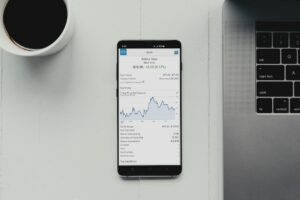The Role of Brokers in Forex Trading: Understanding Their Importance
Forex trading, also known as foreign exchange trading, is the largest and most liquid financial market in the world. With trillions of dollars being traded daily, it offers immense opportunities for individuals and institutions to profit from currency fluctuations. However, to participate in forex trading, one needs the assistance of a forex broker.
Forex brokers act as intermediaries between traders and the forex market. They provide access to the market, execute trades, and offer various tools and services that facilitate trading. Understanding the role of brokers in forex trading is crucial for anyone looking to venture into this exciting and potentially lucrative market.
1. Market Access
The primary role of a forex broker is to provide traders with access to the forex market. Unlike other financial markets, such as stocks or commodities, the forex market operates 24 hours a day, five days a week. Brokers enable traders to participate in this round-the-clock market by offering online trading platforms. These platforms allow traders to buy and sell currencies directly from their computers or mobile devices.
2. Execution of Trades
Forex brokers execute trades on behalf of traders. When a trader places an order to buy or sell a currency pair, the broker ensures that the trade is executed at the best available price. This is achieved by connecting traders to liquidity providers, which are typically large financial institutions or banks that offer competitive bid and ask prices. By executing trades efficiently, brokers ensure that traders can enter and exit positions in a timely manner.
3. Provision of Trading Tools and Platforms
Forex brokers offer trading platforms that enable traders to monitor the market, analyze price movements, and execute trades. These platforms come with a wide range of features, including real-time charts, technical indicators, and order management tools. Some brokers even provide advanced trading platforms that cater to the needs of professional traders, offering features like algorithmic trading and customizable layouts.
4. Educational Resources
Many forex brokers provide educational resources to help traders improve their skills and knowledge. These resources may include articles, tutorials, webinars, and video courses that cover various aspects of forex trading. By offering educational materials, brokers empower traders to make informed decisions and develop effective trading strategies.
5. Risk Management Tools
Forex trading involves a certain level of risk, and brokers play a vital role in helping traders manage that risk. They offer risk management tools such as stop-loss orders and take-profit orders. These tools allow traders to set predetermined levels at which their positions will be automatically closed to limit potential losses or secure profits. Additionally, brokers may offer margin trading, which allows traders to leverage their capital and amplify potential returns. However, it is important for traders to understand the risks associated with leverage and use it responsibly.
6. Customer Support
In the fast-paced world of forex trading, having reliable customer support is crucial. Forex brokers typically provide customer support services to assist traders with any issues or inquiries they may have. This can be in the form of online chat, phone support, or email. Good customer support ensures that traders can resolve any technical or account-related problems promptly, allowing them to focus on their trading activities.
In conclusion, forex brokers play a vital role in facilitating forex trading. They provide traders with access to the market, execute trades, offer trading tools and educational resources, assist with risk management, and provide customer support. Choosing a reputable broker is essential for a trader’s success in the forex market. By understanding the importance of brokers and their role in forex trading, individuals can make informed decisions and maximize their potential for profitable trading.






